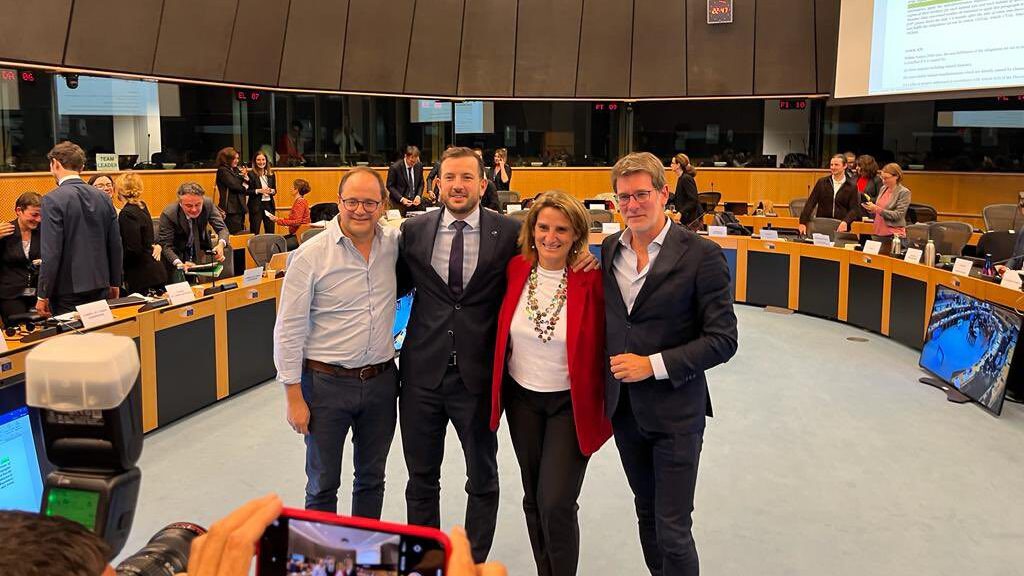
Photo: @VSinkevicius on X (Twitter), November 9, 2023.
Centrists came together in Brussels late Thursday night as MEPs from the S&D and EPP coalesced to clear the final legislative hurdle for the Nature Restoration Law (NRL). The highly controversial act, which many farming groups believe will trigger spiralling food inflation, seeks to scale back industrial farming to stop environmental degradation.
Arguably the most hotly contested piece of legislation on the EU’s calendar this year, the NRL was narrowly passed at a plenary session of the European Parliament in Strasbourg in July, despite objections by the centrist EPP. They were accused of pandering to populists months before the EU elections.
Shortly before 11 p.m. on Thursday, MEPs concluded negotiations with the European Council. They agreed to set aside 20% of total EU land and waters away from farming by 2030. Additionally, they agreed to implement stringent new environmental standards aimed at protecting biodiversity.
.@pcanfin speaking on the EU Nature restoration law 🌍
— European Parliament Audiovisual Service (@europarlAV) November 10, 2023
📽️ More statements by @cesarluena and @Teresaribera available here: https://t.co/xfQkQ3LOM0 pic.twitter.com/twNEjVLzse
The EPP boasts that it has protected Common Agricultural Policy (CAP) funding from being spent on the NRL. They also secured emergency breaks for member states to opt out of the law if food security is jeopardised. However, this is unlikely to placate already rebellious EU farmers.
After Thursday’s deal between MEPs and EU institutions, the NRL will now head to individual member states for ratification and a final run through the Parliament’s environmental ENVI committee.
Even before being implemented, the NRL is likely to spur on more anger among European farmers. There have already been protests in Cyprus over claims that 79% of arable land will be unfarmable under the new regulations.
In a statement to The European Conservative, MEP Christine Schneider (EPP) said the Commission was “ideologically driven” when it came to the NRL and that the EPP hoped their amendments would lessen the impact on food producers.
The growing attack on farming practices has rattled the normally complacent EPP and played into a behind-the-scenes internal power struggle between party president Manfred Weber and Commission chief Ursula von der Leyen. This power struggle revolves around the future direction of the faction and its willingness to cooperate with populist elements in the ECR and ID groups.
Many Brussels insiders regard the attempt at thwarting the NRL as a trial run for a potential EPP-ECR alliance that could mark the parliamentary terrain after 2024 as, by any measure, the European Green Deal runs out of legislative steam.
